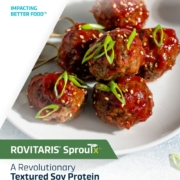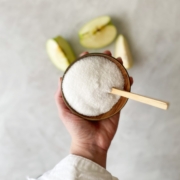The protein revolution: How science is supercharging plant ingredients
From AI-designed proteins to fermentation breakthroughs, manufacturers are discovering untapped potential in plant proteins beyond simple meat substitutes. Sanjana Suresh looks at how recent innovations in processing techniques and functionality enhancements are transforming these ingredients into versatile agents for foaming, emulsification, and structure-building, while simultaneously addressing clean-label demands and cost concerns.










 Fooditive Group
Fooditive Group